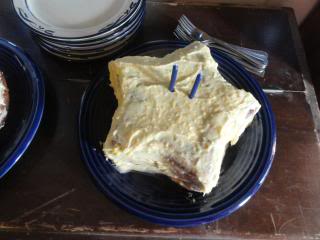
Debbie Regan wrote:
In moving towards unschooling, I think it helps to *add* things rather than "eliminate" things. Adding is more likely to be positive—more flexible and open-ended. "Eliminating" is not many steps away from a rule, from rigidity. Yes chores / No chores. Both are rules—rules which intrude, regardless of what's really important.
—Debbie Regan
photo by Elise Lauterbach































